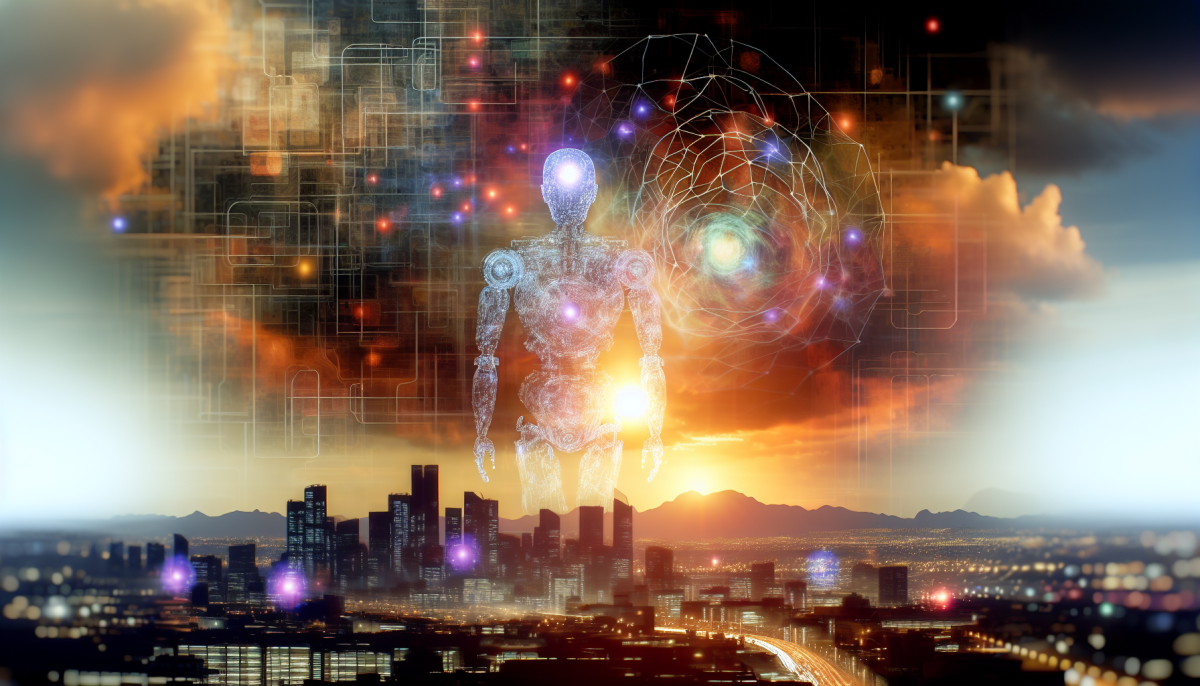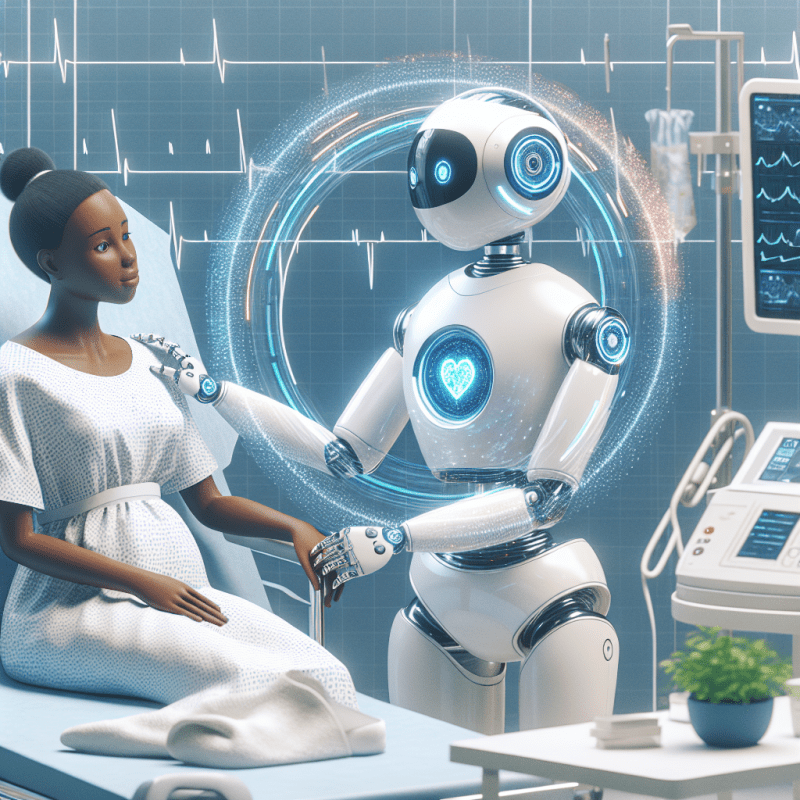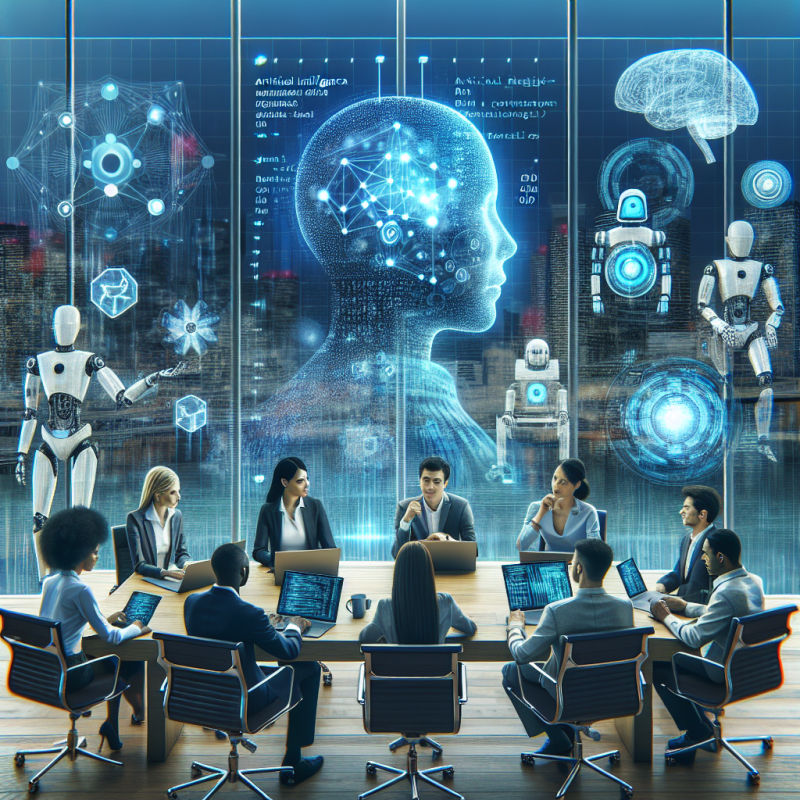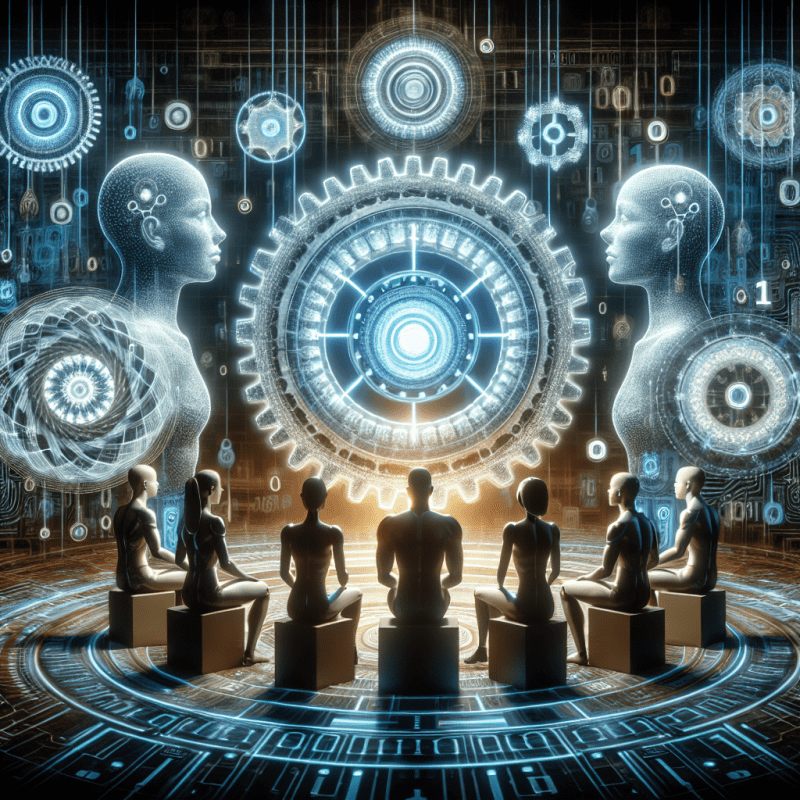At the beginning of AI, researchers focused on creating machines that could mimic human thought processes. Early programs were able to solve puzzles and play games like chess. However, it wasn't until the advent of big data and powerful computing that AI truly began to evolve. Advancements in machine learning and deep learning have allowed AI to analyze massive datasets and learn from them, leading to breakthroughs in various fields such as healthcare, finance, and transportation.
Today, we see AI embedded in our daily lives, from virtual assistants like Siri and Alexa to recommendation systems on platforms like Netflix and Amazon. These innovations illustrate how the beginning of AI is not just about robots or futuristic technology, but also about enhancing everyday experiences. The impact of AI extends beyond consumer products; businesses are leveraging AI to optimize operations, improve customer service, and make data-driven decisions.
As we continue to explore the capabilities of artificial intelligence, the potential for further innovation seems limitless. Industries are beginning to embrace AI-driven solutions to tackle some of the world's most pressing challenges, such as climate change, healthcare accessibility, and resource management. The beginning of AI marks a pivotal point in history where human ingenuity meets advanced technology, setting the stage for a future that will be shaped by intelligent systems and their ability to learn and adapt.
Transforming Everyday Life
As we stand at the beginning of AI, our daily lives are being transformed in ways we never imagined. Simple tasks that once required a significant amount of time and effort are now handled effortlessly by artificial intelligence. From personal assistants like Siri and Alexa to advanced algorithms that can predict our shopping habits, AI is reshaping how we interact with technology.
Imagine waking up in the morning to an AI that adjusts your thermostat and brews your coffee before you even get out of bed. Smart home devices connected through AI make our mornings smoother, allowing us to focus on what really matters. Whether it’s automating routine chores or helping us manage our schedules, the beginning of AI opens up a world of convenience.
Moreover, the beginning of AI is not limited to just homes and personal devices. In industries like healthcare, AI is revolutionizing diagnostics and patient care. Imagine doctors assisted by AI tools that analyze medical history and suggest treatment options, leading to more accurate diagnoses and better patient outcomes. This innovation isn’t just about efficiency; it's about enhancing human lives.
In our workplaces, AI is also making a massive impact. Automating repetitive tasks frees up employees to focus on strategic thinking and creativity. Companies are realizing that embracing AI can lead to increased productivity and innovation. The beginning of AI signifies not just a technological shift, but also a cultural one as we learn to adapt and thrive in this new landscape.
Innovations Changing Industries
The beginning of AI is not just a technological breakthrough; it is a transformative force that is reshaping various industries across the globe. From healthcare to finance, these innovations are streamlining processes, enhancing decision-making, and creating new opportunities. As businesses adopt AI solutions, they are discovering that the potential for efficiency and growth is unprecedented.
In healthcare, for instance, AI is revolutionizing patient care. Machine learning algorithms can analyze medical data much faster than human doctors, aiding in early diagnosis and personalized treatment plans. Wearable technology, powered by AI, allows for real-time health monitoring, leading to proactive medical interventions. This synergy between technology and medicine embodies the beginning of AI, promising improved outcomes for patients.
The finance sector is also experiencing a significant transformation due to AI innovations. Automated trading systems are using predictive analytics to make swift decisions that can maximize profits while minimizing risks. Additionally, AI-driven chatbots are enhancing customer service, enabling instant responses to inquiries and streamlining banking transactions. These advancements signal the beginning of AI, where financial institutions are more agile and customer-focused than ever before.
Retail is another industry being reshaped by the beginning of AI. Companies are utilizing AI to analyze consumer behavior, tailor marketing campaigns, and manage inventory more efficiently. With algorithms predicting trends and preferences, businesses can provide a more personalized shopping experience, which not only boosts sales but also builds customer loyalty. This level of engagement marks a pivotal shift in how retail operates in the modern marketplace.
Preparing for a Smarter Tomorrow
As we stand at the beginning of AI, the potential for a smarter tomorrow is becoming apparent. Innovations driven by artificial intelligence are transforming various aspects of our daily lives, from how we work to how we communicate. It’s an exciting time filled with opportunities, and preparing for this change is essential for individuals and organizations alike.
One of the first steps in preparing for this future is to stay informed about advancements in AI technology. Knowledge is power, and understanding the basics of artificial intelligence—how it works and its potential applications—can help individuals anticipate its effects on their lives and careers. There are countless resources available, including online courses, podcasts, and articles that can make the complex world of AI more accessible.
Furthermore, we should embrace learning new skills that complement AI technologies. As the beginning of AI ushers in automated systems, skills like critical thinking, emotional intelligence, and creativity will become increasingly valuable. By honing these traits, we can enhance our employability and ensure that we remain relevant in a rapidly changing job market.
Lastly, collaboration is key in this new era. The thoughtful integration of AI into our communities requires teamwork among technologists, businesses, and the general public. By fostering conversations about the ethical use of AI and its consequences, we can shape a future that benefits everyone. Working together will ensure that the journey into the future is inclusive and balanced, preparing us all for what lies ahead.



